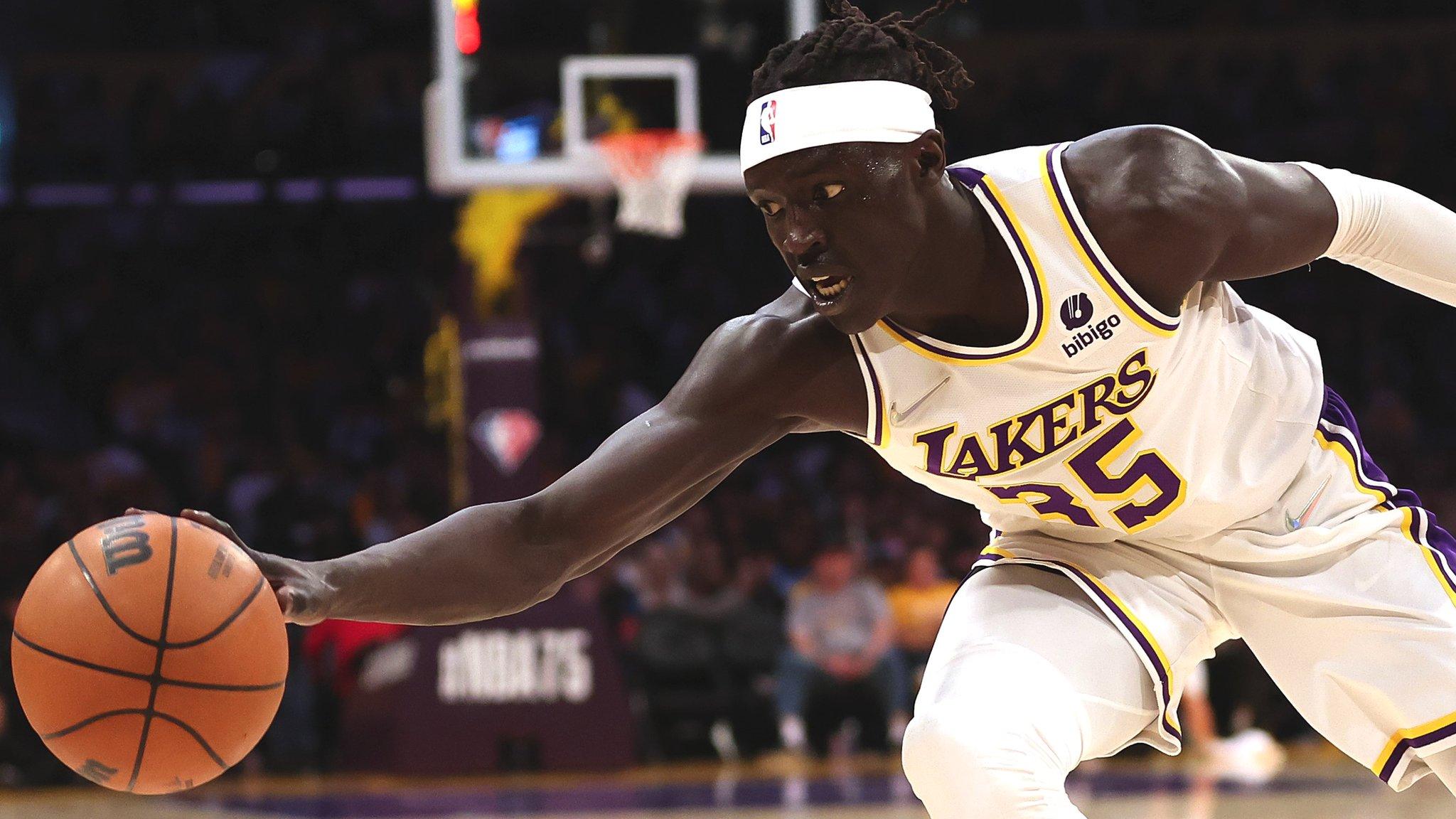Pope and archbishop on historic peace mission to South Sudan
- Published
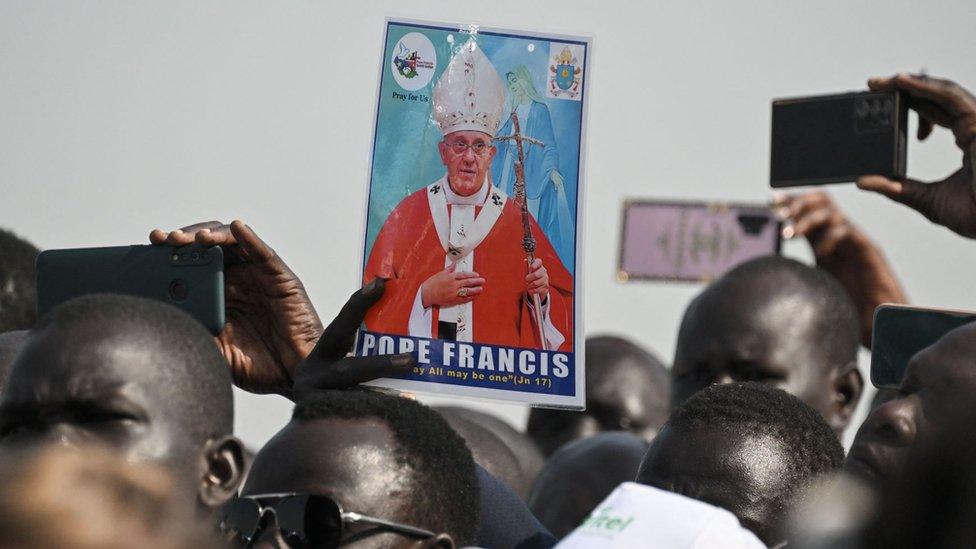
There has never been a visit like it and it has been years in the planning.
The first people to greet Pope Francis when he arrived in the South Sudanese capital were Archbishop Justin Welby and Moderator Rev Iain Greenshields, who both boarded the papal plane moments after it landed.
All three religious leaders were greeted with fanfare at Juba's airport before travelling through singing, cheering and ululating crowds to the Presidential Palace.
"It is a circuitous journey, yet one that can no longer be postponed," said Pope Francis, referring to delays in the trip caused by Covid, security concerns and the pontiff's own health problems.
"I have come with two brothers, the Archbishop of Canterbury and the Moderator of the General Assembly of the Church of Scotland. Together, stretching out our hands, we present ourselves to you and to this people in the name of Jesus Christ, the Prince of Peace," the Pope said.
But this trip comes at a time when long-term peace and stability in South Sudan seem a distant prospect. It's people are suffering crushing poverty and have little hope in their political leaders.
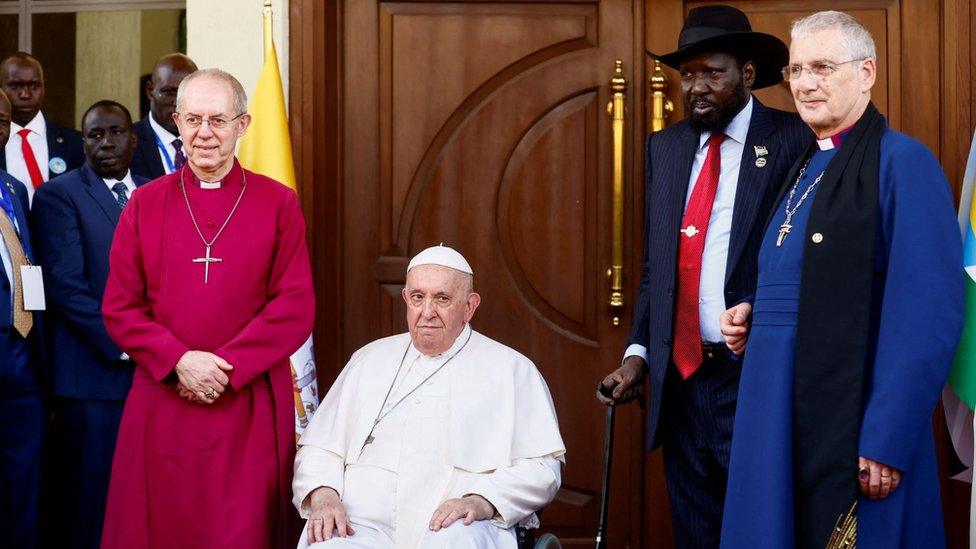
Left-right: Archbishop of Canterbury Justin Welby, Pope Francis, South Sudan President Salva Kiir Mayardit and Church of Scotland Moderator Iain Greenshields
The youngest nation of the world has been ravaged by a bloody civil war since its leaders disagreed over control of the oil-rich country in 2013, just two years after its independence from Sudan.
More than 400,000 people are thought to have died as a result of the conflict and though a peace deal in 2018 created a unity government, some of its key provisions have not been implemented.
More than 60% of the population of South Sudan is estimated to be Christian, mainly belonging to Catholic, Anglican and Presbyterian traditions, though the war has been fought along ethnic and not religious lines.
The battle for control mainly raged between the supporters of President Salva Kiir, an ethnic Dinka, and supporters of the First Vice-President Riek Machar, a Nuer.
Despite the deal, and the fact that they are working together, relations between the two men remain strained and there appears to be a lack of trust.
Violence continues in parts of the country driven by ethnic tensions as well as a splinter group from Mr Machar's party - at least 20 people were killed during a cattle raid on the eve of the religious leaders' visit.
In 2019, in one of the most dramatic moments of his papacy, Pope Francis kissed the feet of the leaders at the end of a retreat at the Vatican, at a time when it looked like the fragile peace agreement was about to collapse.
Pope Francis appealed for peace after kissing the rival leaders' feet in 2019
It was then that a commitment was made for the three Christian leaders to visit South Sudan.
"Pope Francis knelt to kiss the feet of each politician. Almost five years later, we come to you in this way again: on our knees to wash feet, to listen, serve and pray with you," Archbishop Welby said in Juba.
There is considerable anticipation in South Sudan at what is a sensitive time.
"After the 2019 retreat, our political leaders made a pledge that they will never take the country back to war," said Father James Oyet Latansio, general-secretary of the South Sudan Council of Churches.
Fr Oyet referred to the visit as an "ecumenical pilgrimage of peace" and feels the three religious leaders are uniquely placed to influence South Sudan's politicians, most of whom are church-going Christians: Mr Kiir, a Catholic and Mr Machar, Presbyterian.
"It will be a strong voice, a moral voice calling on the leaders of South Sudan telling them: 'Please now, give the people of South Sudan the peace they deserve,'" Fr Oyet said.
In an ugly, bloody battle for control of resources that morality has often been devastatingly absent.
The conflict has brought so many brutal experiences to the people, it affects the spiritual life of the people and battles their hope and their trust in God"

"We are a majority Christian country, but what we are practising is not in keeping with Christian values," said Father John Gbemboyo Mbikoyezu of the Sudan and South Sudan Catholic Bishops' Conference.
"The conflict has brought so many brutal experiences to the people, it affects the spiritual life of the people and battles their hope and their trust in God," he said.
Fr Gbemboyo said he was looking for a message of peace from the three visiting religious leaders but he, like Fr Oyet, also wants the Pope to directly tell South Sudan's leaders to focus on implementing peace for the sake of the country's people.
With the capital's notoriously pot-holed roads fixed and the way that Juba has been spruced up, there is no doubt about the significance the leaders attach to this visit.
It is intended that there will be joyful, celebratory moments through the trip. The BBC has been told 300 choir members and 70 altar dancers have been rehearsing for months. During the papal Mass in Juba, choir master Angelo Filberto Mussa says they will perform songs composed by South Sudanese.
"I am so happy the Pope is visiting us since we have been having a lot of issues. His coming will actually change a lot," said Deborah Yar Juma, a member of the congregation of the Anglican Church of South Sudan and a student at the University of Juba.
"When someone like the Pope comes and talks about peace, there is a hope that they [South Sudan's political leaders] will implement it."
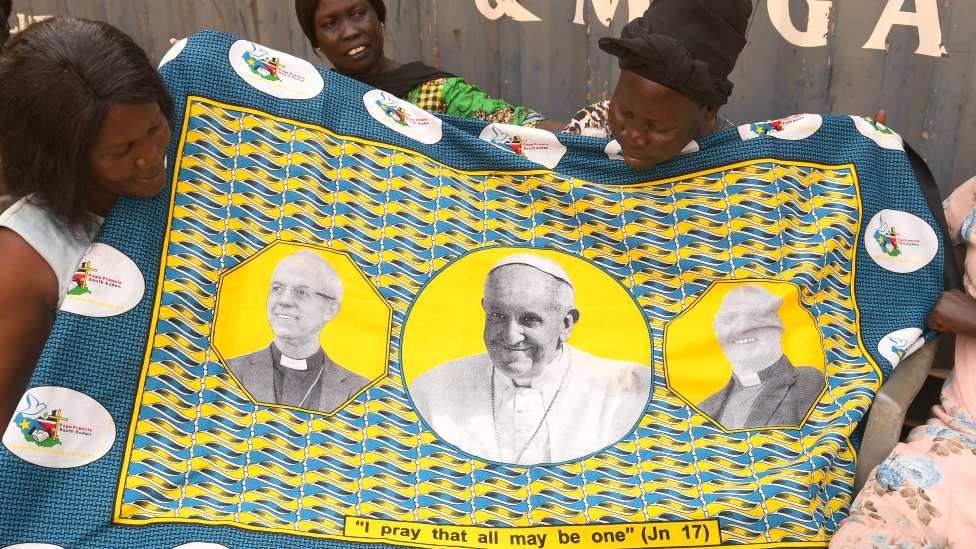
There is huge excitement in South Sudan over the visit of the three clerics
But there has also, for many years, been frustration in South Sudan directed at global churches that had been keen to support the creation of the state, but once that had been achieved, did not follow through with adequate support in helping build civil society and political institutions.
Frustration too in some quarters, that South Sudan's church leaders have not been strong enough advocates for peaceful co-existence among all South Sudanese.
"Churches both locally and globally failed in their moral responsibility to infuse doses of morality into political life in South Sudan," said Lino Nyaro Ungom, a former high school teacher and community activist in Juba.
"Moral decadence led to rampant corruption and conflict that led to loss of innocent lives and displacement of millions.
"If the churches had a strong voice, they would have challenged the politicians who are faithful in their churches and violence could have been prevented."
The Pope, Archbishop and Moderator suggest it is precisely that voice that they want to raise in South Sudan now, and that they will not hesitate in speaking frankly to South Sudan's political leaders.
"We need leaders who care about the values by which our countries live, who care about the conditions in which people live, and who act out their faith in work amongst the most vulnerable and marginalised. These things make for peace," said Rev Ian Greenshields, Moderator of the Church of Scotland, at Juba's Presidential Palace.
But in a country where poverty and food insecurity is rife, flooding has caused so much devastation, aid has been cut from some of the very countries, including the UK, that supported its creation, and where ethnic disputes have deepened, there are many obstacles to lasting progress.
The Pope and Africa:
Why is Pope Francis in South Sudan?
Related topics
- Published18 April 2023
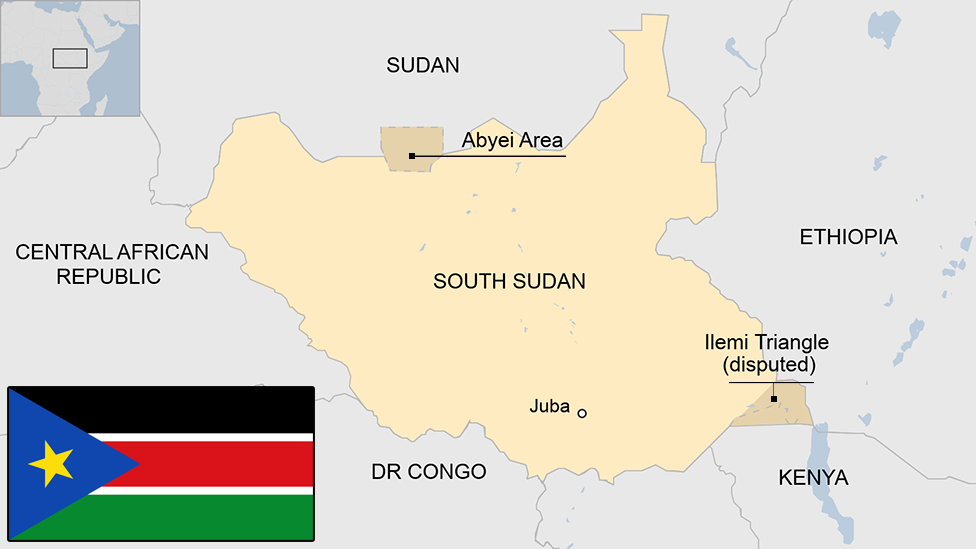
- Published23 December 2022
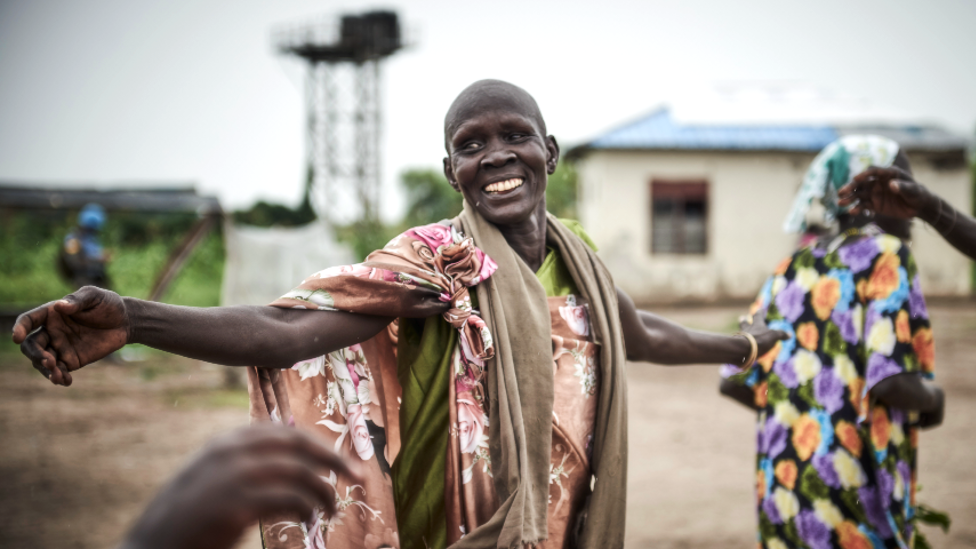
- Attribution
- Published12 August 2022
